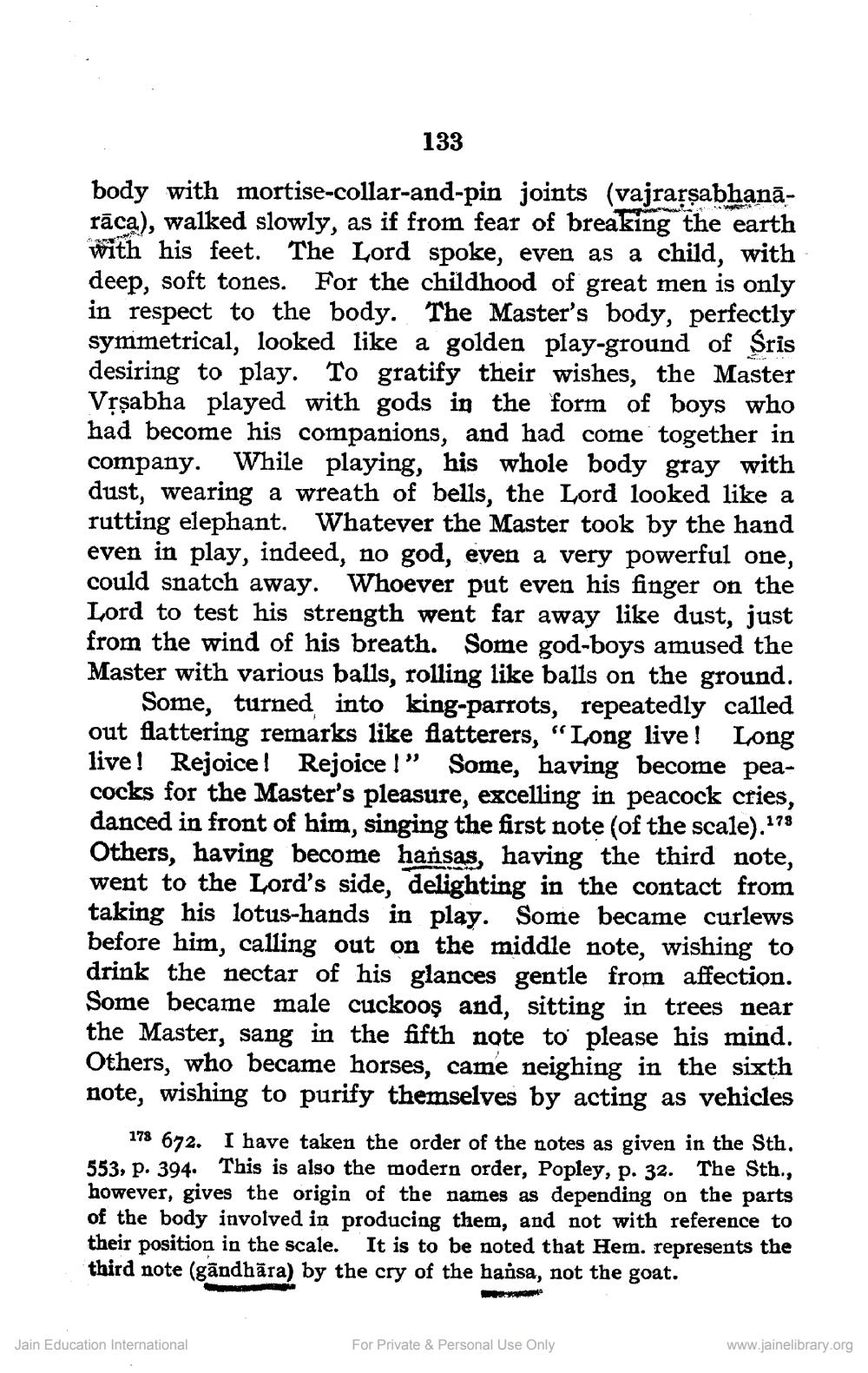________________
133
body with mortise-collar-and-pin joints (vajraṛṣabhanāraca), walked slowly, as if from fear of breaking the earth with his feet. The Lord spoke, even as a child, with deep, soft tones. For the childhood of great men is only in respect to the body. The Master's body, perfectly symmetrical, looked like a golden play-ground of Śris desiring to play. To gratify their wishes, the Master Vṛṣabha played with gods in the form of boys who had become his companions, and had come together in company. While playing, his whole body gray with dust, wearing a wreath of bells, the Lord looked like a rutting elephant. Whatever the Master took by the hand even in play, indeed, no god, even a very powerful one, could snatch away. Whoever put even his finger on the Lord to test his strength went far away like dust, just from the wind of his breath. Some god-boys amused the Master with various balls, rolling like balls on the ground. Some, turned into king-parrots, repeatedly called out flattering remarks like flatterers, "Long live! Long live! Rejoice! Rejoice!" Some, having become peacocks for the Master's pleasure, excelling in peacock cries, danced in front of him, singing the first note (of the scale). 178 Others, having become hansas, having the third note, went to the Lord's side, delighting in the contact from taking his lotus-hands in play. Some became curlews before him, calling out on the middle note, wishing to drink the nectar of his glances gentle from affection. Some became male cuckoos and, sitting in trees near the Master, sang in the fifth note to please his mind. Others, who became horses, came neighing in the sixth note, wishing to purify themselves by acting as vehicles
178 672. I have taken the order of the notes as given in the Sth. 553, p. 394. This is also the modern order, Popley, p. 32. The Sth., however, gives the origin of the names as depending on the parts of the body involved in producing them, and not with reference to their position in the scale. It is to be noted that Hem. represents the third note (gandhara) by the cry of the haisa, not the goat.
Jain Education International
For Private & Personal Use Only
www.jainelibrary.org




